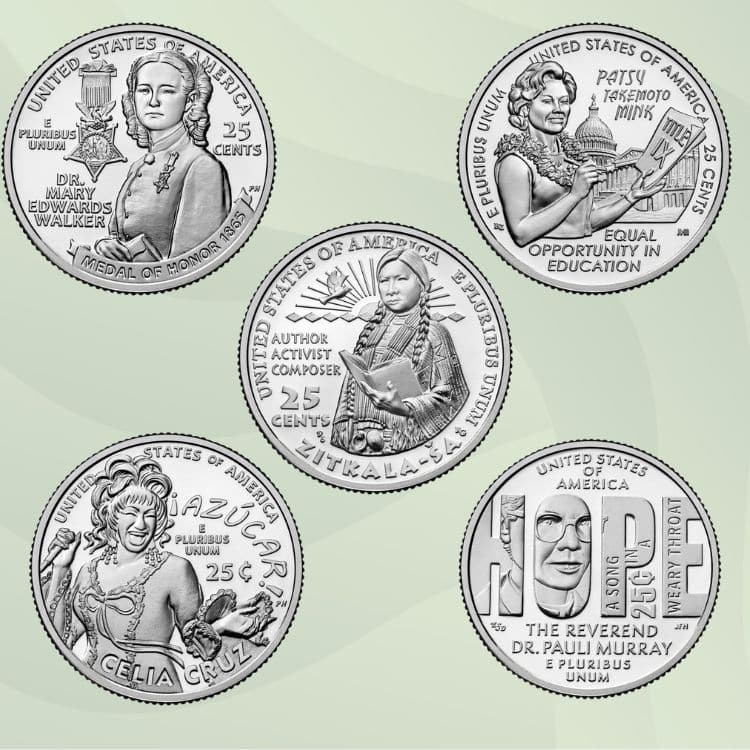
There are two sides to every coin, and this year the United States Mint will continue to celebrate various female figures throughout history by placing them on one side of the U.S. quarter. From Civil War era surgeon Dr. Mary Edwards Walker to salsa sensation Celia Cruz, this year will highlight impactful representations of women who have played significant roles in enacting positive change. These carefully designed portraits that depict five different women on U.S. quarters emphasize the way imagery shapes our understanding of people. These coins are “pocket portraits” that can inspire people to continue making a positive impact in their communities.
Peeling back the layers of these images emphasizes the importance of accurate visual representations of historical figures. As the perfect pocket portraits, hopefully these images of strong women spark an encouraging spirit to find ways of positively impacting the world.
The proof set of the 2024 American Women Quarters is now available for $23. Scroll down to learn a bit more about each woman.
The United States Mint has unveiled new U.S. quarter designs in honor of five pioneering women in various fields.
Dr. Mary Edwards Walker
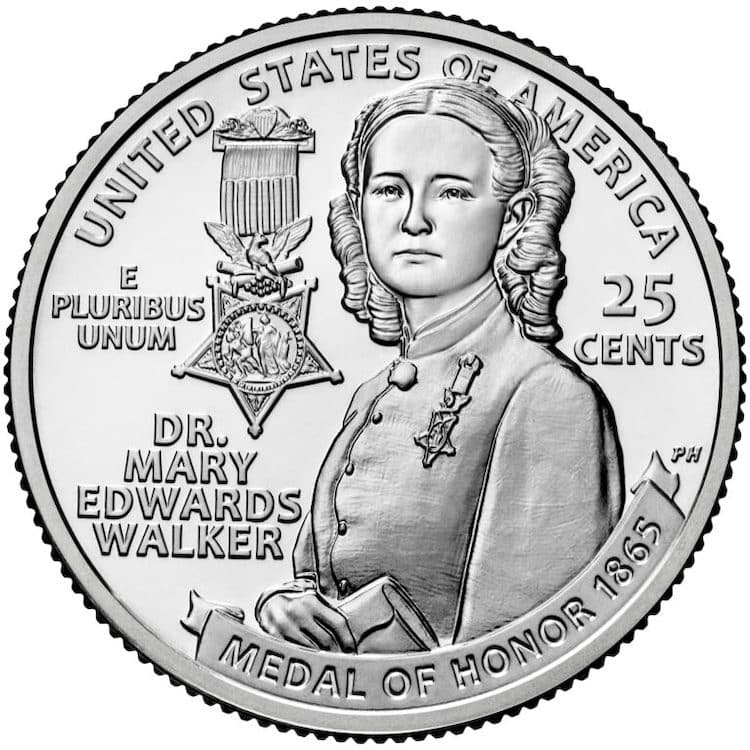
Dr. Mary Edwards Walker’s posture emits a sense of strength in the way that she confronts the viewer. The only female to earn such a high achievement, she is featured with her Medal of Honor. Born in New York, her family valued education. Dr. Edwards continued her education at the Syracuse Medical School where she earned her degree. At the inception of the Civil War, Dr. Edwards dedicated herself to providing medical assistance to those injured in war. She also founded the Women’s Relief Organization, which supported families of soldiers wounded in action.
Pauli Muray
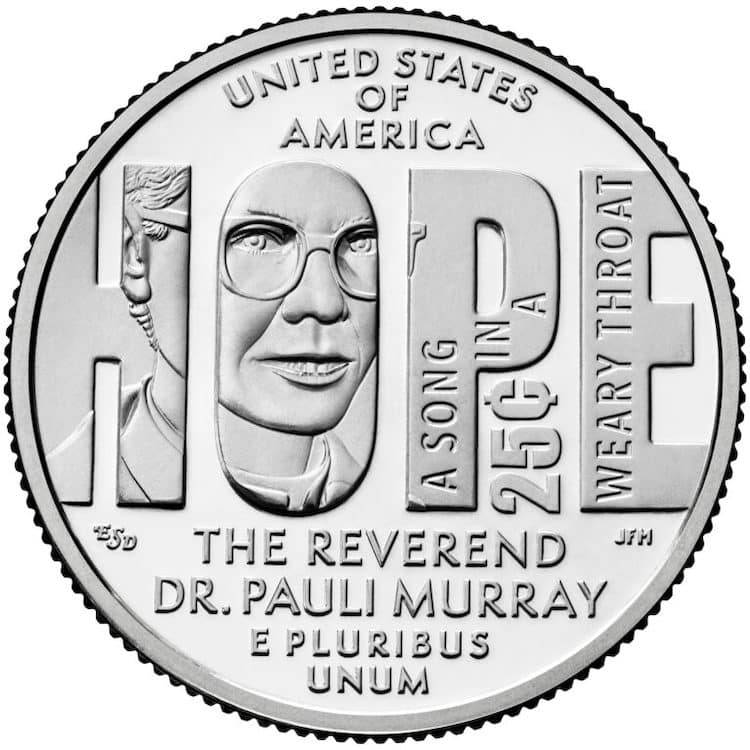
Pauli Muray was a reverend and established poet who passionately fought for civil rights. Born in Baltimore, Murray earned her degree from the Harvard University law program with a focus on civil rights law. Later in her career, Reverend Murray co-founded the National Organization for Women. Her dedication to improving the quality of life for all continues to live on in this design. Her portrait spans across the capitalized word “HOPE,” her face framed by the curved line of the letter “O.” Murray believed deeply that hope acts as a cornerstone for positive social changes. Her incredible efforts motivate people to act with the intention of a bright future.
Patsy Takemoto Mink
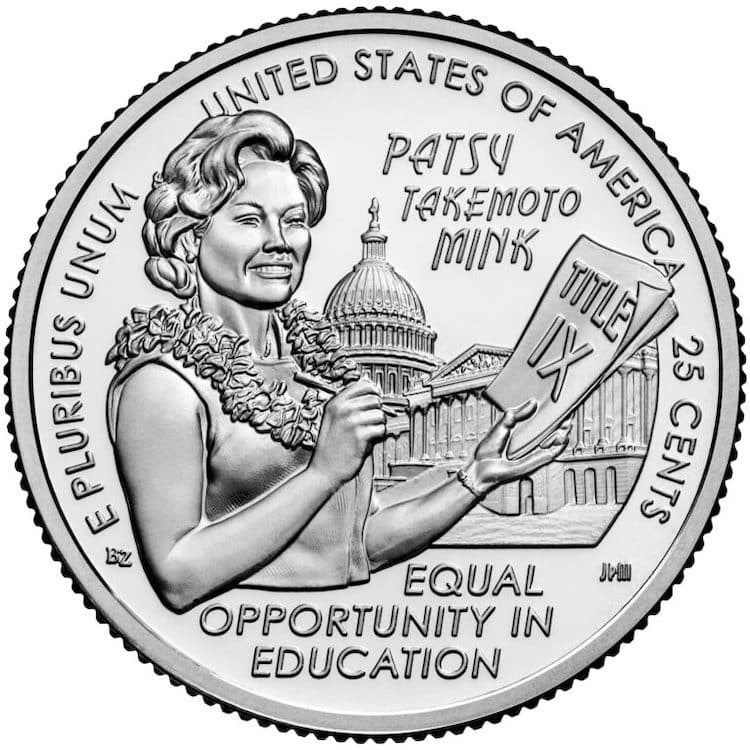
The etching of Patsy Takemoto Mink represents her unwavering faith in equal opportunity education, gender and racial equality, and care for the environment fueled her to enact hopeful change. Takemoto Mink achieved her degree from the University of Chicago in the early 1950s. Her graduating class included her and one other female, immediately speaking to her concern for gender equality. The life and efforts of Takemoto Mink inspire people to achieve the goals you set out for yourself, which is highlighted in her appearance on the U.S. quarter. She is depicted as a woman of action, writing legislation in front of a government building. This scene features her with a Hawaiian lei gracefully draped around her neck, emphasizing her environmentally conscious efforts.
Zitkala-Ša (“Red Bird”)
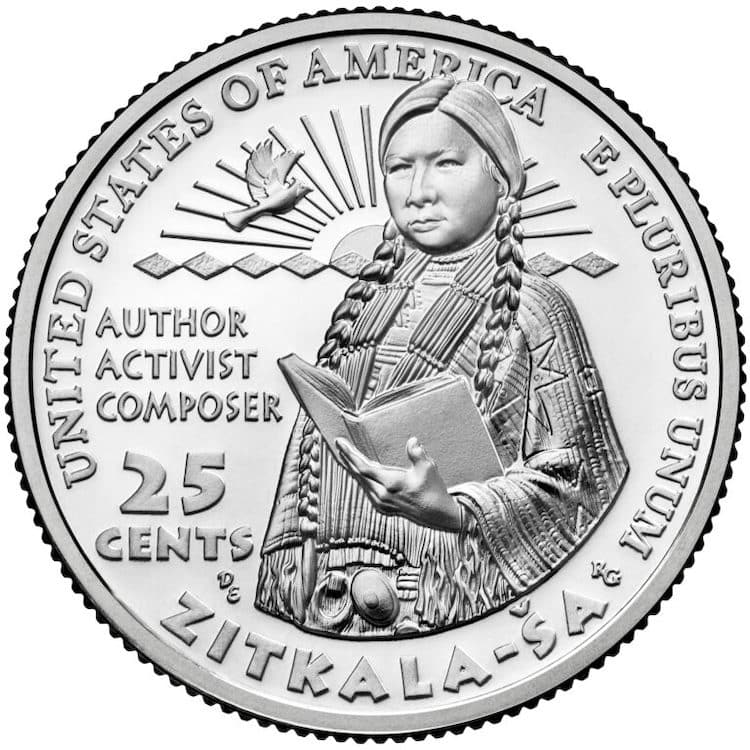
Native American figure Zitkala-Ša’s composition includes her figure, holding a book and looking off into the distance. There is a sun in the background with a bird flying off to the left of the frame. She wears traditional Native American clothing and is accompanied by the words “Author. Activist. Composer.” Zitkala-Ša, Red Bird, was raised by her mother and on a reservation in South Dakota, until she was taken to Indiana by Quaker missionaries. There, she briefly attended the White’s Indiana Manual Labor Institute. Her life experiences fueled her desire to actively encourage social change through her writing and music. This composition uses visual imagery to inspire viewers to dig deeper and achieve even greater feats of positivity.
Celia Cruz
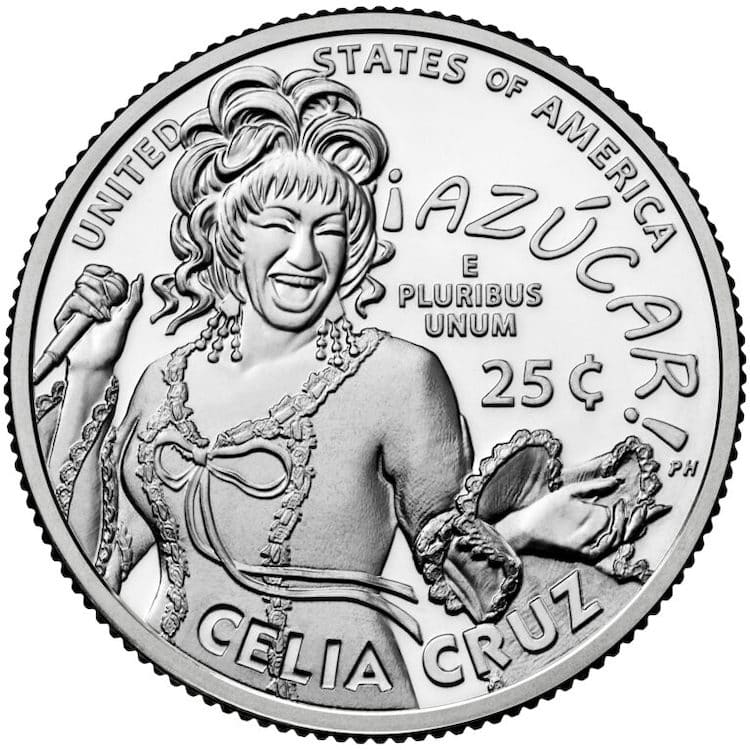
The lively spirit of Cuban salsa dancer and singer Celia Cruz comes to life in this composition that celebrates her zesty personality. Growing up in Havana, Cruz was surrounded by the vibrant nature of Cuban music. Eventually, the pursuit of her singing career led her to move to the United States after the Cuban Revolution in the 1950s. As if you can hear the beat of the music, this tiny portrait evokes movement as the fabric of her garb flows across the coin. Cruz wears a joyful smile on her face, perhaps inspiring people to embody a similar energy.
h/t [Fast Company]
All images via the United States Mint.
Related Articles:
Trailblazing Actress Anna May Wong Becomes the First Asian American to Appear on U.S. Currency
Maya Angelou Will Be the First Woman To Appear on the U.S. Quarter in 2022
U.S. Quarter Honoring NASA Astronaut Sally Ride Is Officially in Circulation Now
